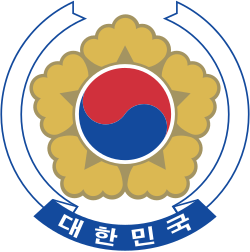Political parties
The ruling Democratic Liberal Party was formed in 1990 through the merger of the former ruling Democratic Justice Party along with two opposition parties, the Reunification Democratic Party (RDP) and the New Democratic Republican Party (NDRP). The merger resulted in DLP having a congressional supermajority of 218 seats, which was more than 2/3 of whole seats. The party supported President Roh Tae-woo and included among its members former opposition leader Kim Young-sam and former Prime Minister Kim Jong-pil.
The leading opposition party was the Democratic Party. It was formed in 1991 through the merger of the New Democratic Allied Party (called Peace Democratic Party in previous election) led by Kim Dae-jung and former members of the RDP with the minor Democratic Party. The party was co-led by Kim and Lee Ki-taek. DP won 97 seats, which was less than 100 seats, one third of the whole seats, needed to prevent DLP's attempt to revise the constitution.
The Unification National Party was a conservative, centrist, developmentalist, pro-business party led by Hyundai founder Chung Ju-yung. The party campaigned heavily on the issue of the economy and the poor record of President Roh's government. The RNP won 31 seats, which was more than 10% of the seats, with 17.4% of popular vote, and joined the opposition.
These major three parties competed in presidential elections on 19 December, which ended with DLP nominee Kim Young-sam's victory.
This page is based on this
Wikipedia article Text is available under the
CC BY-SA 4.0 license; additional terms may apply.
Images, videos and audio are available under their respective licenses.




